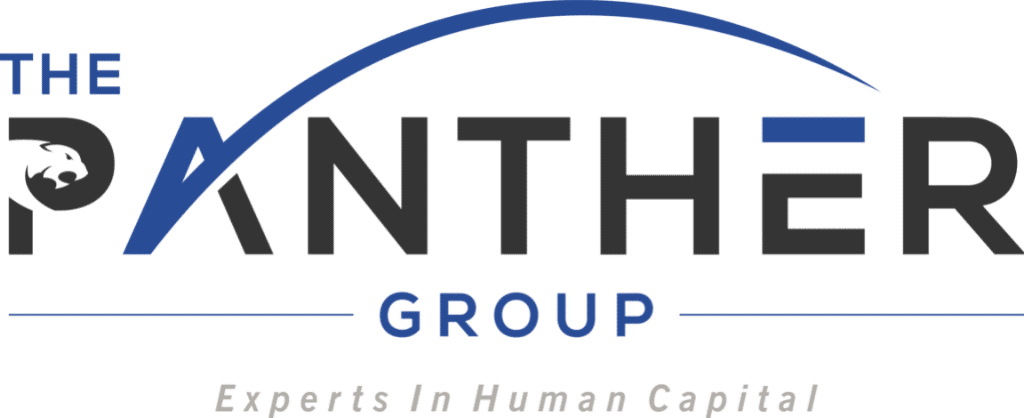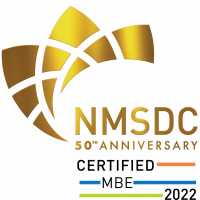In the ever-changing landscape of talent acquisition, one crucial factor has emerged as a game-changer in the hiring process: culture fit. As HR professionals, your role goes beyond simply filling vacancies; you are the architects of your company’s workforce, entrusted with assembling a team that can collaborate seamlessly and propel the organization toward success. In this blog, we’ll explore why hiring for culture fit is an indispensable element when choosing new employees and how it positively impacts your company and its potential for growth. Numerous studies and surveys have been completed, including this one cited in the Journal of Organizational Behavior, that consistently show a correlation between job satisfaction and to what degree employees fit a company’s company culture.
What is Culture Fit?
Culture fit refers to the alignment between an employee’s values, beliefs, work style, behaviors, and attitudes with those of the company they join. It goes beyond just matching skills and qualifications to the job description. A candidate may have impeccable credentials but still struggle to thrive in a company with a different work environment and set of values.
1. Enhanced Team Cohesion and Collaboration
One of the most significant benefits of hiring for culture fit is fostering a cohesive and harmonious work environment. When employees share similar values and work styles, they are more likely to communicate effectively, collaborate seamlessly, and support each other through challenges. A cohesive team can achieve synergy, boost productivity, and deliver superior results, ultimately contributing to a positive and fulfilling work experience.
2. Increased Employee Engagement and Retention
Engaged employees are the lifeblood of any successful organization. When employees feel a deep connection to the company’s mission and values, they are more likely to be motivated, passionate, and committed to their roles. This strong sense of belonging results in higher job satisfaction, reduced turnover rates, and increased employee retention. By focusing on culture fit during the hiring process, you can build a workforce that is more likely to stay with the company for the long term.
3. Positive Impact on Company Morale
Culture fit influences the overall morale within your organization. A team that shares common values and a collective sense of purpose will naturally foster a positive and supportive atmosphere. Such a workplace culture not only attracts top talent but also encourages employees to be more creative, innovative, and willing to take calculated risks. A positive work environment leads to higher employee morale, which, in turn, creates a virtuous cycle of increased productivity and employee satisfaction.
4. Faster Onboarding and Integration
When new hires align with your company’s culture, they tend to adapt more quickly and seamlessly. They will naturally assimilate into the existing team, which speeds up the onboarding process. This allows new employees to become productive contributors faster, reducing the time and resources required for training and integration.
5. Brand Building and Reputation
Your employees are your brand ambassadors. When you hire individuals who embody your company’s values, they will naturally project these values to the outside world. Positive employee experiences and authentic endorsements can enhance your company’s reputation and attract like-minded customers and partners. Hiring for culture fit can thus indirectly contribute to brand building and reputation management.
6. Conflict Resolution and Workplace Harmony
While diversity is essential, incompatible personalities and values can lead to conflicts in the workplace. By emphasizing culture fit during the hiring process, you can mitigate the risk of potential clashes and reduce the likelihood of disruptive internal disputes. A harmonious work environment is crucial for maintaining focus, efficiency, and overall organizational success.
Defining Company Culture: Reducing Hiring Bias and Identifying Core Values
In the quest to hire employees who fit well into your company culture, defining that culture clearly and objectively is of utmost importance. Some of the challengers of hiring for culture fit argue that hiring for culture fit perpetuates wholesale bias or individual bias. Creating a comprehensive understanding of your organization’s values and behaviors not only helps reduce hiring bias but also assists in attracting candidates who will thrive and contribute positively to your workplace. Here’s how to go about it:
1. Self-Reflection and Analysis
Start by engaging in an introspective analysis of your company’s values, mission, and vision. Reflect on the essence of what makes your organization unique. Involve key stakeholders, including leadership, employees, and even customers, to gather diverse perspectives and insights. This step is crucial in ensuring an accurate and comprehensive understanding of your existing culture.
2. Define Core Values
Identify the core values that serve as the foundation of your company culture. These are the guiding principles that govern decision-making, behavior, and interactions within your organization. Examples of core values include integrity, innovation, teamwork, and customer-centricity. When interviewing candidates, assess their alignment with these core values to ensure they’ll integrate seamlessly into your team.
3. Describe Behavioral Expectations
Once your core values are defined, translate them into actionable behaviors. Describe how these values manifest in the day-to-day activities of your employees. For instance, if teamwork is a core value, behaviors like active collaboration, open communication, and willingness to support colleagues should be emphasized. This clarity helps in gauging whether potential candidates possess the desired behavioral attributes.
4. Develop Interview Questions and Scenarios
Craft interview questions and scenarios that revolve around your core values and behavioral expectations. Use behavioral-based interview techniques to uncover candidates’ past experiences and actions that align with your culture. For example, you might ask, “Tell us about a time when you went above and beyond to help a teammate achieve their goals.” Such questions reveal a candidate’s inclination toward teamwork and collaboration.
5. Train Interviewers to Recognize Cultural Fit
Train your interviewers to identify and assess cultural fit objectively. Hiring managers and HR professionals should be aware of unconscious biases that could influence their decisions. Encourage them to focus on specific examples and evidence when evaluating candidates’ alignment with your culture. This training helps ensure a fair and consistent evaluation process.
6. Use a Diverse Interview Panel
Incorporate diversity into your interview panel to mitigate the risk of homogeneity in your hiring decisions. A diverse panel brings different perspectives to the evaluation process and reduces the likelihood of groupthink. When evaluating cultural fit, a variety of viewpoints can help in recognizing alignment beyond superficial similarities.
7. Utilize Behavioral Assessments and Tests
Consider incorporating behavioral assessments and tests during the hiring process. These tools provide additional insights into a candidate’s personality, work style, and behavioral tendencies. When well-designed and validated, such assessments can be valuable in assessing culture fit objectively.
8. Solicit Employee Feedback
Your current employees are a valuable resource for understanding and refining your company culture. Conduct employee surveys or focus groups to gather feedback on the existing culture and areas for improvement. Engaging your employees in this process not only makes them feel valued but also helps you gain a more comprehensive understanding of your organization’s identity.
Why Does Culture Matter?
Defining your company culture with precision and openness is crucial to reducing hiring bias and identifying candidates who will thrive within your organization. By clearly defining core values and behavioral expectations, crafting tailored interview questions, and training interviewers to recognize cultural fit objectively, you can create a more inclusive and effective hiring process. Strive for a balanced approach that welcomes diverse perspectives while maintaining a cohesive and harmonious work environment.
Remember, hiring for culture fit is not about seeking clones but about finding individuals who resonate with your organization’s values, mission, and ways of working. Embrace the diversity that aligns with your culture, and your organization will flourish with a team that embodies your shared vision.
Building Your Team? Panther’s Recruiters Can Help.
Finding the right employees to build the company reputation you want is paramount to the success of your long-term recruitment needs. You need the right talent at every level consistently to meet your business goals and retain your reputation as an employer of choice.
That’s why The Panther Group is the ultimate solution to streamline your recruitment process and secure top talent, quickly, that drives business growth.
We specialize in the national recruitment of professionals that keep your business running and your recruitment strategy strong; Engineers, Human Resources, Accounting, Admin Staff, Call Center, IT, Manufacturing and professionals in Life Science roles.
Partnering with The Panther Group will give your team and organization the competitive edge it needs to thrive. Contact us here to request specific roles.




